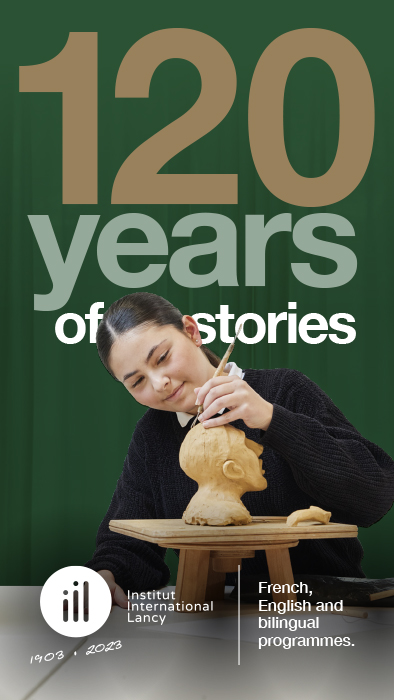If you haven’t met Jaime Sánchez-Ratia, you are missing out. He’s an Arabist, an erudite who has devoted his life to the study of the Arabic language and culture, and who has accumulated more than 30 years of experience at the United Nations. He works at the Spanish Translation Section, but he has a parallel career as an author and as a translator of Arabic literature. Soon after this interview, Jaime won the Sheikh Hamad Award for his translation of the book Akhabr Abu Tammam by Muhammad bin Yahya Al-Souli.
In essence, he’s the kind of generous, knowledgeable person one is proud to call a colleague, and the kind of voice you’ll feel compelled to listen to, should you ever get the chance.
Your intimate knowledge of the Arabic language and culture must have been a great asset in your career at the United Nations, please tell us more about this.
I have been fortunate enough to have lived in Egypt, worked in Jordan, studied in Tunisia, and traveled extensively around Morocco. That is why I think the organization should capitalize on opportunities such as the possibility for staff members to work away from headquarters, to help them keep their language skills alive. This is a task that requires a very deliberate effort, which is not easy when, for example, you have family obligations.
What are the challenges the organization faces in the area of translation?
Mainly, the challenge of rationalization. There is a huge and ever-increasing amount of documentation that the organization needs to process, and it has been doing so by investing in technology. However, I think it would be in the interest of the UN to ask member states to be concise in their submissions, to concentrate on the communication of a message.
The model of our profession is already shifting towards one where the translator would be the “human in the loop” of an autonomous translation system. This raises big questions. Those of us who have accumulated many years of experience in the organization can catch and correct the mistakes made by technology. However, if new recruits are entrusted with the task without enough experience and training, the results can be disastrous.
Newer generations of translators, trained in translation schools, have a different profile to those who came, like you, from more diverse backgrounds.
The clash of these two tides did generate a bit of a divide, but it has also been beneficial for both sides. Before, people came from other domains, other occupations, and today most of our new recruits have been trained in a more structured way, with a focus on rigor and on intra- and inter-textual cohesion. This has been mind-opening for many of us, and I feel positively influenced by our younger colleagues.
In turn, these colleagues show an interest in the more varied experiences of those who are older. We have had highly educated colleagues, who had read everything, who had experienced almost the beginnings of translation in the multilateral sphere. I miss them. They brought to translation a background, a richness that showed us that there are other virtues, in addition to rigor, that should be incorporated into our work. They embodied a way of translating that perhaps is being lost in the interest of greater standardization and an increased emphasis on the purely formal.
Is this why you also translate Arabic literature? Where do you find the time?
I always say that I’m like a house painter who then comes home and takes out his easel, which might be seen as heroic, but could just as well be considered a bit sad. It so happens that Arabic literature is so beautiful, so vast and so difficult to reflect in a European language that, to me, this is almost a duty. If one can, even modestly, contribute to making this treasure known, it becomes almost a moral obligation. Even if it means getting up at 6 o’clock in the morning.
It sounds like a vocation, almost like a priesthood.
Yes, because it’s a completely unknown literature, despite its great richness and intelligence, particularly in the classical period. I am also now discovering modern poetry, thanks to my translations of some authors and to the fact that I teach Arabic literature at a writers’ school, where there are magnificent poets. Among other things, I am collecting a series of works that I would like to read, and even translate, after retirement, such as the Maqamat of Al-Hariri, which is a monument of Arabic culture. Also, spurred by a book I have published on Abu Tamman, I want to make an anthology of this great ninth century poet whose work is very well known in the Arab world. In general, Arabs are very fond of poetry, it is in their soul.

Where does the pleasure of translation reside?
In the search for exact equivalence and, above all, in the creation of the act of communication. When I most enjoy translation is when it poses a great challenge, for example when one finds an elegant way of writing in Spanish an Arabic sentence constructed in an impossibly complex way. If we are talking about literature, working with poetry requires some distancing. We can’t translate it literally. We have to find something that is as poetic as the original and also says essentially the same thing. That is the balance to be struck. We must reconcile the different musicalities of the two languages. Working on a poem over and over again is wonderful, you have a terrific time. Sometimes ten verses take you months. It’s almost a work of goldsmithing.
On occasion, after translating a poem, you find a source that directly contradicts the interpretation you had made, and you have to start again!
This vocation of yours has earned you recognition and won you prizes?
Yes, twice, by the Spanish Society for Arab Studies. I’m currently working with a group of people in compiling poetry from the Taifa of Silves, which was an important Taifa of the Andalusian kingdom, in what is now Portugal. There were many fantastic poets there, such as Al-Ramadi or Ibn al-Milh. We have put together a very interesting anthology of poems by authors who were very famous but whose work was in danger of disappearing because it had not been compiled.
Also, at the beginning of the year, a book that I translated came out about Abu Tammam. It was written by a 10th century polygrapher who wanted to defend the figure of Abu Tammam against that of Al-Buhturi, who was his favourite disciple and a more stylistically classical author, while Abu Tammam was a more innovative one. This is a unique manuscript preserved in Istanbul. I am now in the process of developing a companion website for this book, a sort of collaborative project with Arab colleagues to add an extra dimension to the reading of the book.
El Collar de la Paloma is a translation in a bilingual edition that was very laborious and which I thought had gone unnoticed, but then I was invited to give some conferences and I received a lot of very good feedback.
Why is the Western world so sluggish in embracing Arab culture?
It is a very rich culture, but we tend to see it as if through a mirror, almost as an opposite. What would be desirable, for example, would be the creation of a community that unites all the cultures of the Mediterranean. This is made difficult by the colonial past of European nations, racism, certain ideas surrounding immigration, and modern islamophobia, which still contains some of the medieval hatred for an “enemy religion”.
This can be explained by a lack of knowledge of Arab culture, which is much richer, deeper, and more interesting than people think, but of course, an effort, a curiosity is required to gain access to it. For example, when Naguib Mahfouz was awarded the Nobel Prize for literature, there was a wave of interest, a high point that led to the translation of many works, but all that interest has dissipated a bit. There are still publishers, like Hiperión and others in Spain, who are constantly publishing works of great interest. Incidentally, my translation of one the books by Fadhil al-Azzawi, an exiled Iraqi poet translated into Spanish for the first time, has been recently published.
In France, which has the advantage of having a large Arabic and French-speaking, educated population, they have good quality translations. This is beginning to happen in Spain now, but there’s still a lack of collaboration between Spaniards and Arabs in making these texts more understandable and the translations more idiomatic. In France this is not necessary because the knowledge of both languages is more profound, as a result of having several generations of this bilingual population.
Finally, would you like to share any lessons you have learned during your career?
Yes, two. The first is that the wonderful thing about the UN is its people. Human relationships are a treasure that must be preserved. You have to dedicate time to personal ties. The second is what John Lennon said in his song, that life is what happens while you are making other plans. We all have a kind of drive – Schopenhauer called it “the will” – which leads us to pursue goals that are sometimes misguided. That’s why, when we get older, we start to think about all those things we may have passed over. Work is a great help in this, because it forces you to forget your will, your obsessions, and to focus on others, on interaction and on the job.
I was just a boy from Zaragoza, but I got to see the Twin Towers, I got to witness how the world works, even if only from afar, I have traveled the world and I have ended up in Geneva with Swiss children. It’s a journey that has been made possible by my working for the organization. It would be a pity to lose the physical presence in the office, because a shift towards remote recruitment would make the job incredibly hard.




